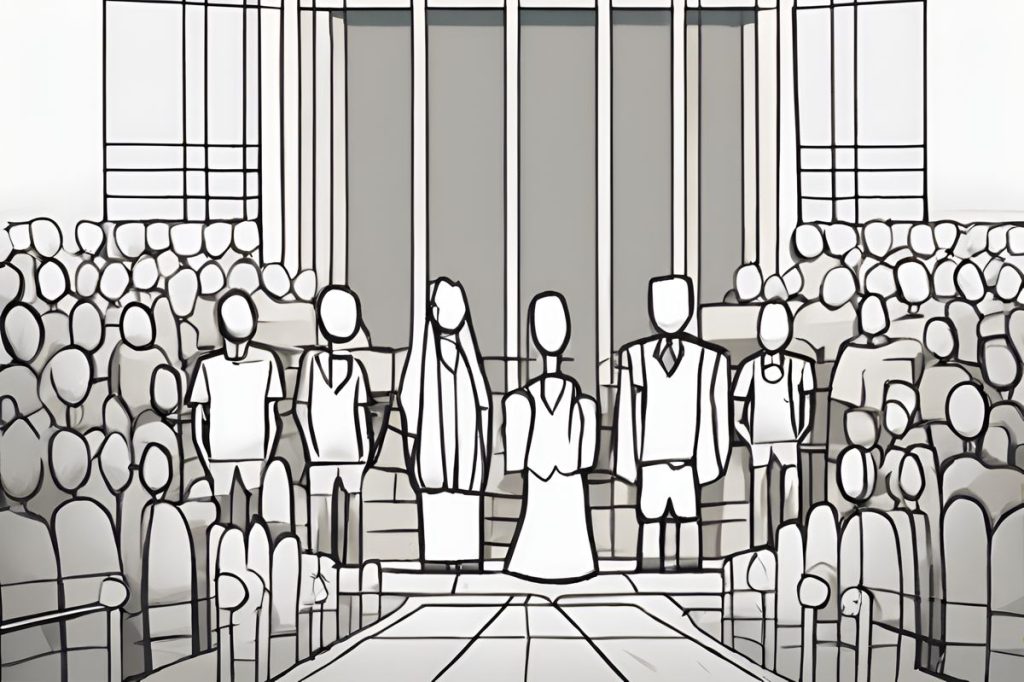The controversy surrounding Thanasis Nicolaou’s case deepens with recent judicial findings suggesting murder by strangulation, challenging the initial ruling of suicide. The family demands an independent investigation to uncover potential misconduct by officials and a systematic cover-up, contradicting the authorities’ narrative upheld for 19 years.
What is the controversy in Thanasis Nicolaou’s case?
The controversy in Thanasis Nicolaou’s case involves the family’s battle for justice, challenging the initial ruling of suicide with recent judicial findings suggesting murder by strangulation. They demand an independent investigation, citing potential misconduct by officials and a systematic cover-up, which contradicts the authorities’ narrative upheld for 19 years.
Call for Independent Investigation
The family of Thanasis Nicolaou has been engulfed in a battle for justice, which has led to a vehement outcry against the involvement of the attorney general’s (AG) office in the ongoing investigation. Lawyer Leto Cariolou, representing the family of the national guardsman, has publicly denounced any further participation by the AG as both unacceptable and unethical. This assertion comes in light of new developments surrounding the case of Nicolaou’s tragic demise.
Nicolaou’s death, initially ruled a suicide after he allegedly fell from a height, has been a source of contention for nearly two decades. The family’s legal counsel insists on the necessity for an independent investigative team, one devoid of ties to the police or the national guard. This assertion is backed by recent judicial findings, which point towards a starkly different cause of death than what was previously reported.
Judicial Revelations and the Struggle for Truth
The mishandling of Thanasis Nicolaou’s case over the years has been brought into stark relief by Judge Doria Varoshiotou’s ruling, which unequivocally attributed Nicolaou’s death to violent, criminal acts — specifically strangulation. This ruling contradicts the long-held official stance that Nicolaou had taken his own life.
Throughout the court proceedings, the state prosecutor’s shifting positions have been noted with concern. Initially claiming suicide, the prosecutor later suggested leaving the cause of death ‘open’ in the final arguments, a move that has not gone unnoticed in the legal analysis of the case.
The judge’s decision thus dismantles the narrative sustained by Cypriot authorities for 19 years, illuminating a troubling persistence to classify what now appears to be a murder as a suicide. The ruling has also cast a harsh light on the state prosecutor’s attitude and posture throughout the investigation.
Ensuing Actions and International Scrutiny
In response to the ruling, the family’s attorney has underscored the importance of the legal critique levied at the state’s legal service. The family now awaits the cabinet’s decision to establish an independent investigative team to delve into the circumstances of Nicolaou’s murder and the alleged systematic cover-up by officials.
Furthermore, international bodies are set to be informed about the case developments. The Committee of Ministers of the Council of Europe will soon receive an update on the inquiry’s outcome, along with insights into the AG’s conduct and potential impediments to justice.
Meanwhile, President Nikos Christodoulides has acknowledged the necessity to examine the historical mishandling of the case. Promising that the executive branch will assess the reasons behind the 19-year delay in justice, Christodoulides left open the possibility of appointing an independent investigator, underlining the gravity of the situation for all involved.
The Pursuit of Justice and Accountability
As the case unfolds, the determination to uncover the truth behind Thanasis Nicolaou’s untimely death only intensifies. The family’s quest for justice is a poignant reminder of the need for transparency and accountability within the legal system. The recent court ruling may serve to restore faith in the judicial process, potentially paving the way for a new chapter in which the truth, no matter how long buried, can finally emerge.
What is the controversy in Thanasis Nicolaou’s case?
The controversy in Thanasis Nicolaou’s case involves the family’s battle for justice, challenging the initial ruling of suicide with recent judicial findings suggesting murder by strangulation. They demand an independent investigation, citing potential misconduct by officials and a systematic cover-up, which contradicts the authorities’ narrative upheld for 19 years.
Why is there a call for an independent investigation in Thanasis Nicolaou’s case?
The family of Thanasis Nicolaou is calling for an independent investigation due to recent judicial findings suggesting murder by strangulation, which contradicts the official ruling of suicide. They believe there may have been misconduct by officials and a systematic cover-up, prompting the need for an investigative team not tied to the police or national guard for a thorough examination of the case.
What revelations have come to light during the court proceedings for Thanasis Nicolaou’s case?
Judge Doria Varoshiotou’s ruling revealed that Thanasis Nicolaou’s death was caused by violent, criminal acts—specifically strangulation—contradicting the official narrative of suicide. The state prosecutor’s shifting positions throughout the proceedings have also been noted, with initial claims of suicide followed by suggestions to leave the cause of death ‘open’, raising questions about the handling of the case by authorities.
What actions are being taken in response to the recent developments in Thanasis Nicolaou’s case?
In response to the ruling, the family’s attorney is advocating for an independent investigation team to delve into the circumstances of Nicolaou’s murder and the alleged cover-up by officials. The case is also set to be presented to international bodies for scrutiny, and President Nikos Christodoulides has expressed a commitment to examine the historical mishandling of the case and potentially appoint an independent investigator to ensure accountability and justice.

